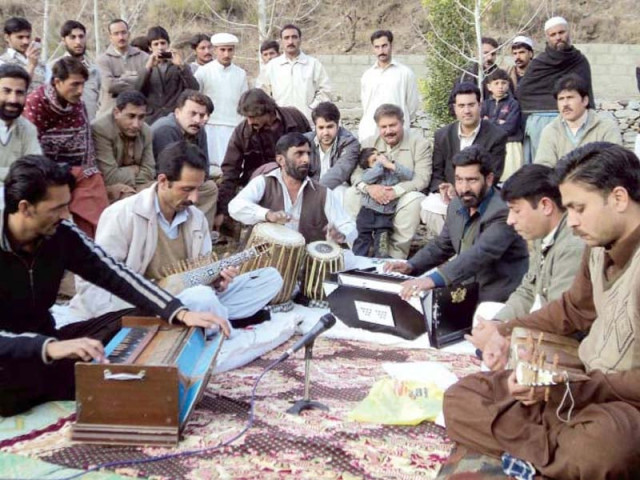Folk music: A lost art form makes a comeback
After militancy, folk music cools the fire of rebellion.

For the first time in four years, folk music, once deep-rooted in Pakhtun culture, traditionally performed by generations of professional musicians in hujras, made a comeback in the form of a music festival in Swat valley.
With the increasing level of militancy in the region, music was banned, instruments broken and violators punished and silenced with death threats. Fast forward four years, a group in Saidu Sharif took the initiative to organise a folk music concert to revive the hujra culture. The festival, held in the open air in Kohistan Gut valley, attracted participants from miles away.
A famous artist from Swat valley, Murad Ali, who was among the participants, told The Express Tribune that music is a symbol of peace. “Music is essential for nourishing the soul. Absence of traditional music impoverishes society which was the case two years ago when evil forces banned cultural activities.”
Nasir, another artist, said, “We want people to know that we are peace loving people and we invite global citizens to come and share our happiness.”
“The music attracted me from four kilometres away”, said Ghani Rehman, a local resident. It was strange to hear it in a place where just two years ago militants could sentence musicians to death. Music performed in a region bestowed with natural beauty, has a deeper impact.
Suvastu Art and Culture Association Chairman Usman Ulaysar, who was among the organisers of the festival, said part of the reason for arranging the concert was to preserve the tradition of folk music.
“We have been arranging folk music concerts for 20 years at this location,” he said. He explained the importance of a hujra in Pakhtun culture. “It serves essentially as a training centre where men gain knowledge about political, social and literary aspects,” he said.
He disclosed his group had continued to organise music activities during the militants’ occupation, albeit not as openly. Hujras play an institutional role for both young and old by providing a forum for sharing views and listening to music and poetry.
Published in The Express Tribune, January 1st, 2012.


1724319076-0/Untitled-design-(5)1724319076-0-208x130.webp)
















COMMENTS
Comments are moderated and generally will be posted if they are on-topic and not abusive.
For more information, please see our Comments FAQ